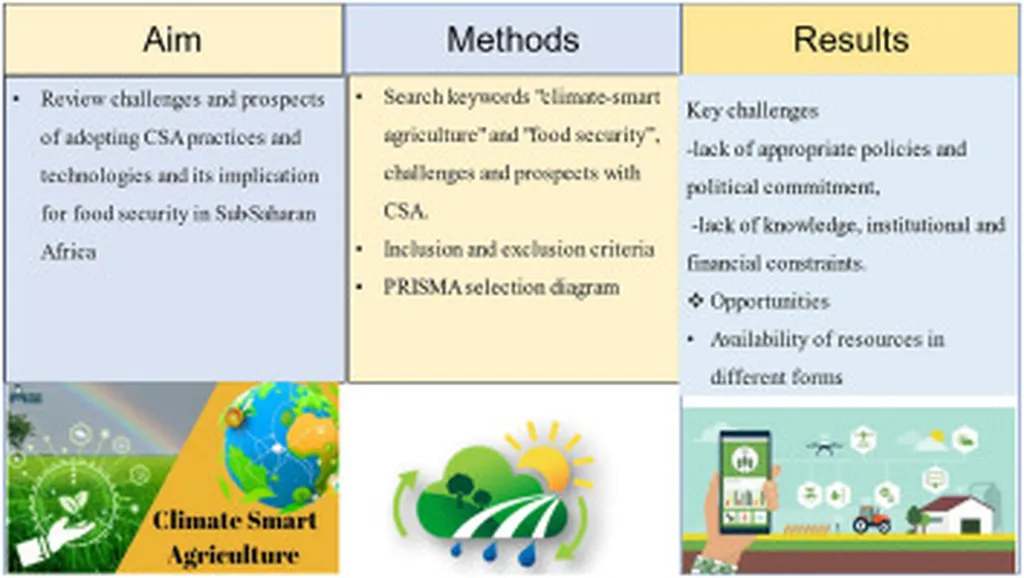In the face of escalating climate change, the global agricultural sector is grappling with significant challenges that threaten food security and productivity. A recent study published in the International Journal of Agronomy, led by Temesgen Begna from the Department of Plant Breeding, sheds light on the potential of climate-smart agriculture (CSA) to mitigate these impacts and ensure sustainable food production.
Climate change has been identified as a primary factor limiting crop productivity, particularly in arid and semi-arid tropical regions. Rising temperatures, altered precipitation patterns, and increased frequency of extreme weather events are disrupting agricultural systems worldwide. “The increasing challenges posed by climate change necessitate innovative approaches to sustain global food security,” Begna emphasizes.
The study reviews various CSA strategies that integrate sustainable farming practices to enhance productivity, promote resilience, and reduce greenhouse gas emissions. Key strategies include the adoption of improved crop varieties, efficient water management, and agroecological techniques. These methods not only help farmers adapt to changing climatic conditions but also contribute to environmental sustainability.
One of the most compelling aspects of the research is its focus on the socioeconomic implications of CSA. Begna highlights the importance of stakeholder engagement and policy support for successful implementation. “There is a pressing need to strengthen government policies and international cooperation to fund climate-smart agricultural initiatives,” he states. This includes promoting knowledge-sharing and providing financial incentives for farmers who adopt sustainable practices.
The study also underscores the importance of crop diversification and the integration of livestock and agroecological practices to reduce risks associated with climate variability. By diversifying their crops, farmers can create more resilient agricultural systems that are better equipped to withstand the impacts of climate change.
The findings of this research have significant implications for the energy sector as well. As the world transitions towards renewable energy sources, the demand for sustainable agricultural practices that can coexist with energy production is growing. CSA strategies can help ensure that agricultural lands remain productive while also supporting the development of renewable energy projects.
Moreover, the study highlights the need for increased investment in research and development to further advance CSA technologies and practices. By fostering innovation and collaboration, the agricultural sector can play a crucial role in mitigating the impacts of climate change and ensuring food security for future generations.
In conclusion, the research led by Temesgen Begna offers a comprehensive overview of the potential of climate-smart agriculture to address the challenges posed by climate change. By integrating sustainable farming practices, promoting stakeholder engagement, and strengthening policy support, the agricultural sector can adapt to changing climatic conditions and contribute to environmental sustainability. The insights provided by this study are invaluable for policymakers, researchers, and farmers alike, as they work towards building a more resilient and sustainable future.

